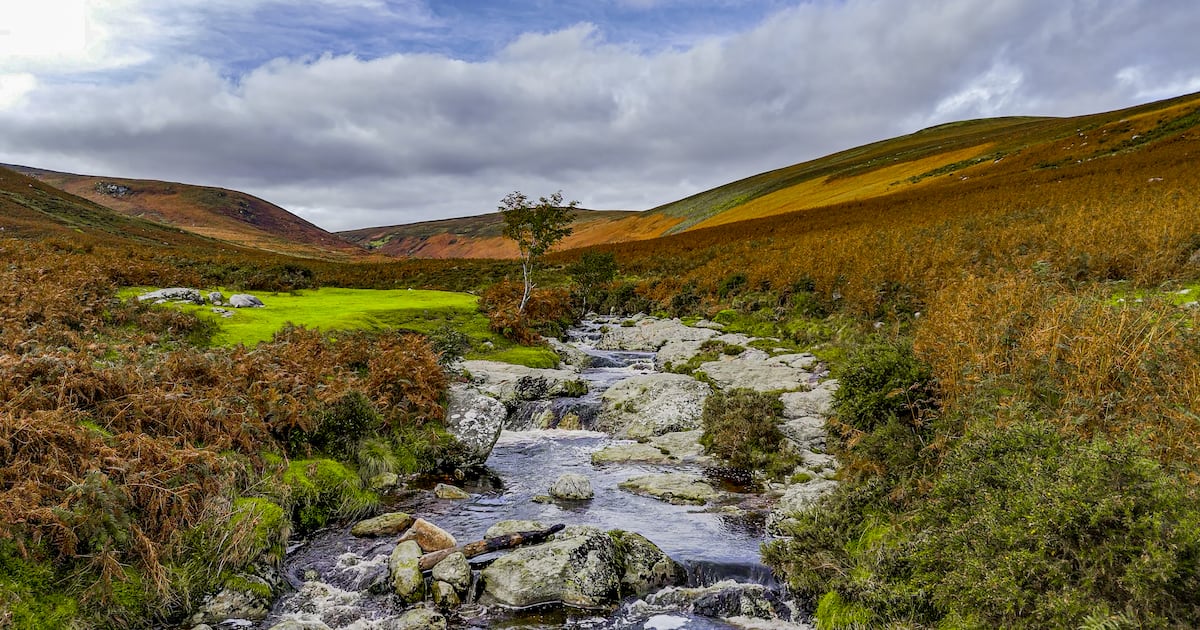Top Stories
EU Report Reveals Ireland’s Environment in Deteriorating State

A recent analysis by the European Environment Agency (EEA) has found that Ireland’s natural environment is in a “very poor” state, with economic growth contributing to significant environmental degradation. The report, part of the State of Europe’s Environment published every five years, highlights critical issues such as declining water quality, increasing waste volumes, and heavy reliance on fossil fuels.
The EEA’s findings paint a troubling picture for Ireland’s environmental reputation. According to the report, 85 percent of the country’s protected habitats and nearly one third of protected species of flora and fauna are classified as having an unfavourable status. Over half of native plant species are in decline, and more than 50 bird species face high conservation concern. The report emphasizes that “significant measures are needed to address declines.”
Water Quality and Resource Management Issues
Water quality in Ireland is assessed as “poor,” with no improvements observed in rivers or lakes over the past five years. Key pressures identified include agriculture, forestry, urban sewage discharges, and artificial modifications to water flows. The EEA noted, “Compliance with EU obligations remains a challenge.” In response to these issues, the Irish Government published a Water Action Plan last year and plans to release a Nature Restoration Plan in 2024.
The report also criticizes Ireland’s waste management practices, highlighting the failure to establish a circular economy. Instead of promoting sharing, repairing, and recycling, Ireland’s economy has remained predominantly linear, characterized by material overconsumption and increasing waste exports. The EEA’s analysis indicates that the country’s economy has prospered significantly, with the population growing by two million over the last 50 years, but this growth has been heavily reliant on environmental resources.
In the most recent progress report, Ireland ranked last among EU member states in terms of expenditure on environmental protection, with spending at just 0.9 percent of GDP compared to the EU average of 2.2 percent. The EEA stresses the need for “scaled-up investment in water, energy, transport, and waste management infrastructure” to meet the demands of a growing population and economy.
Urgent Call for Agricultural Reform
The report indicates that Ireland’s agriculture and food systems require “urgent transformational change.” While various plans and programs are in place, there is no clear evidence that current measures will deliver the necessary environmental outcomes. The intensification of livestock farming, driven by ambitious growth policies, has contributed to ongoing environmental degradation.
Despite these challenges, the report does highlight some progress in areas such as renewable electricity, public transport, air quality, and greenhouse gas emissions reductions. However, it cautions that Ireland needs to accelerate the transition of its energy, transport, food, and industrial systems to achieve sustainability.
The EEA’s findings resonate beyond Ireland, revealing that over 60 percent of species and nearly 80 percent of habitats across Europe are in poor or bad condition. The report concludes that the overall state of Europe’s environment is concerning, with ongoing degradation, overexploitation, and biodiversity loss posing significant risks to economic prosperity, security, and quality of life.
-

 Top Stories4 weeks ago
Top Stories4 weeks agoTributes Surge for 9-Year-Old Leon Briody After Cancer Battle
-

 Entertainment2 months ago
Entertainment2 months agoAimee Osbourne Joins Family for Emotional Tribute to Ozzy
-

 Politics3 months ago
Politics3 months agoDanny Healy-Rae Considers Complaint After Altercation with Garda
-

 Top Stories2 months ago
Top Stories2 months agoIreland Enjoys Summer Heat as Hurricane Erin Approaches Atlantic
-

 World3 months ago
World3 months agoHawaii Commemorates 80 Years Since Hiroshima Bombing with Ceremony
-

 Top Stories3 months ago
Top Stories3 months agoFianna Fáil TDs Urgently Consider Maire Geoghegan-Quinn for Presidency
-

 World3 months ago
World3 months agoGaza Aid Distribution Tragedy: 20 Killed Amid Ongoing Violence
-

 World3 months ago
World3 months agoCouple Convicted of Murdering Two-Year-Old Grandson in Wales
-

 Top Stories4 weeks ago
Top Stories4 weeks agoNewcastle West Woman Patricia Foley Found Safe After Urgent Search
-

 Top Stories2 months ago
Top Stories2 months agoHike Donegal’s Errigal Mountain NOW for Unforgettable Summer Views
-

 Top Stories2 months ago
Top Stories2 months agoClimbing Errigal: A Must-Do Summer Adventure in Donegal
-

 World3 months ago
World3 months agoAristocrat Constance Marten and Partner Convicted of Infant Murder








